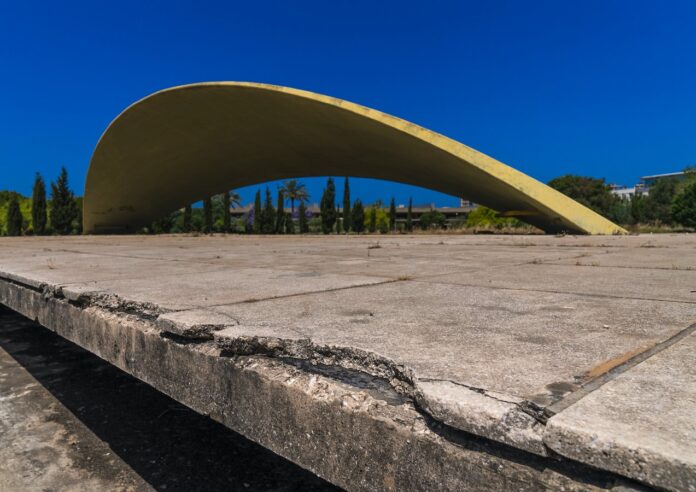DUBAI: Designed in 1962 by the renowned late Brazilian architect Oscar Niemeyer, the Rachid Karami International Fair in Tripoli, Lebanon is now on UNESCO’s List of World Heritage in Danger, which was updated Jan. 25.
The site — a symbol of mid-20th century modernization in the Lebanese architectural landscape and of the historical cross-cultural relations between Brazil and Lebanon — has been neglected and abandoned for decades.
Lebanese architecture expert Dr. Wassim Naghi is hopeful that this will be a positive step for this significant site.
Oscar Niemeyer in 1977. (AFP)
“Frankly speaking, with the ongoing situation in Lebanon (being) a long series of bad news and negative vibes since October 2019, I can tell you this is the best news I’ve heard in the recent tragic history of Lebanon,” he told Arab News.
He explained that, through this listing, the site, which has lacked financial backing and proper maintenance for 60 years, has a good chance of attracting the donors and funds necessary to revive it.
The huge fair, named after the former Lebanese prime minister Rachid Karami, was built from reinforced concrete and stands in a 70-hectare site. Its central building is a covered hall shaped like a boomerang. Its purpose was to host international exhibitions.
Niemeyer, who famously gave Brasilia its bold buildings, showed Karami and the press a model of the site. “It was a total shock in the media,” said Naghi. “It was something very futuristic. They didn’t expect to see these volumes and an outstanding acrobatic structural system. . . It was the talk of the town — and the world, by the way.”
The site faced several delays and was never actually used, mostly down to the outbreak of Lebanon’s civil war, during which the fair was occupied by Palestinian militias and the Syrian Army.
The fair has, somehow, miraculously survived, but it remains in “critical condition,” stresses Naghi. Because it is also located near the seaside, humidity and salt have contributed to its degradation. There have also been some partial collapses in recent times.
“We might witness a total collapse, and that would be a huge loss,” Naghi said. “Not just a loss for Tripoli and Lebanon, but for humanity.”

